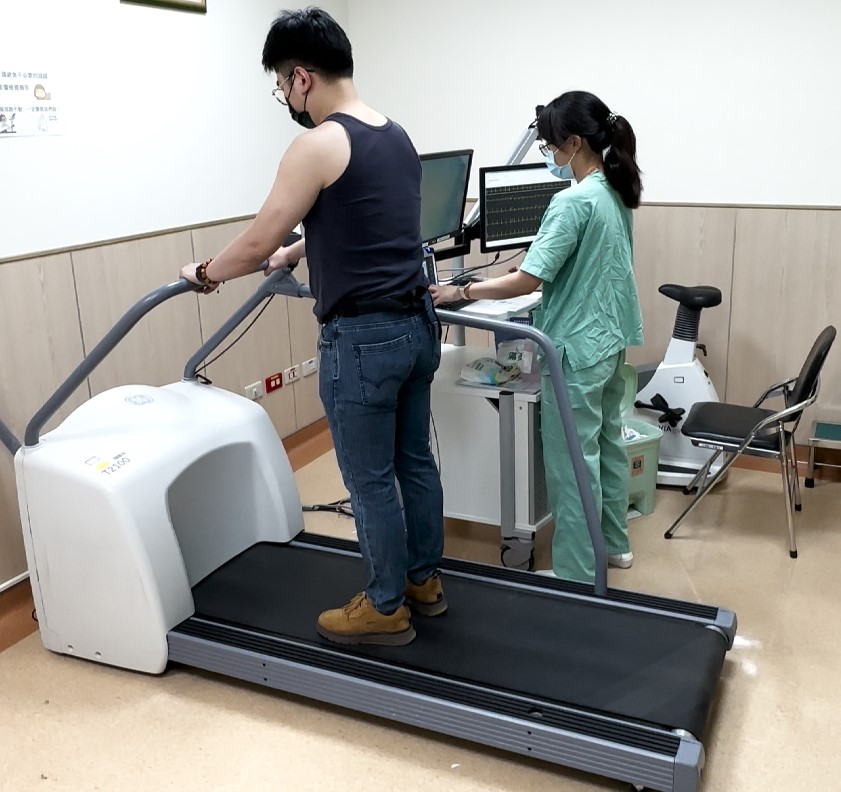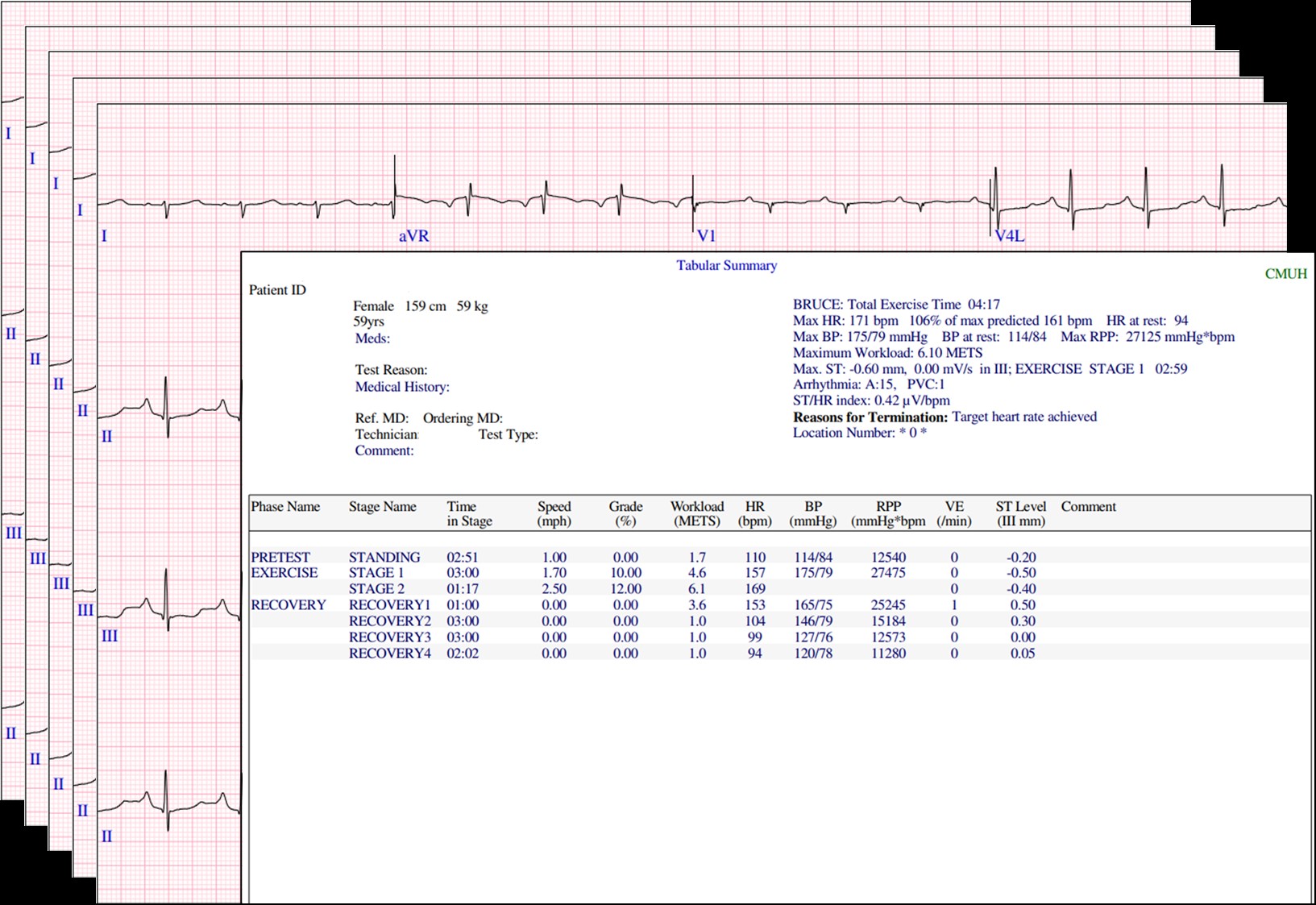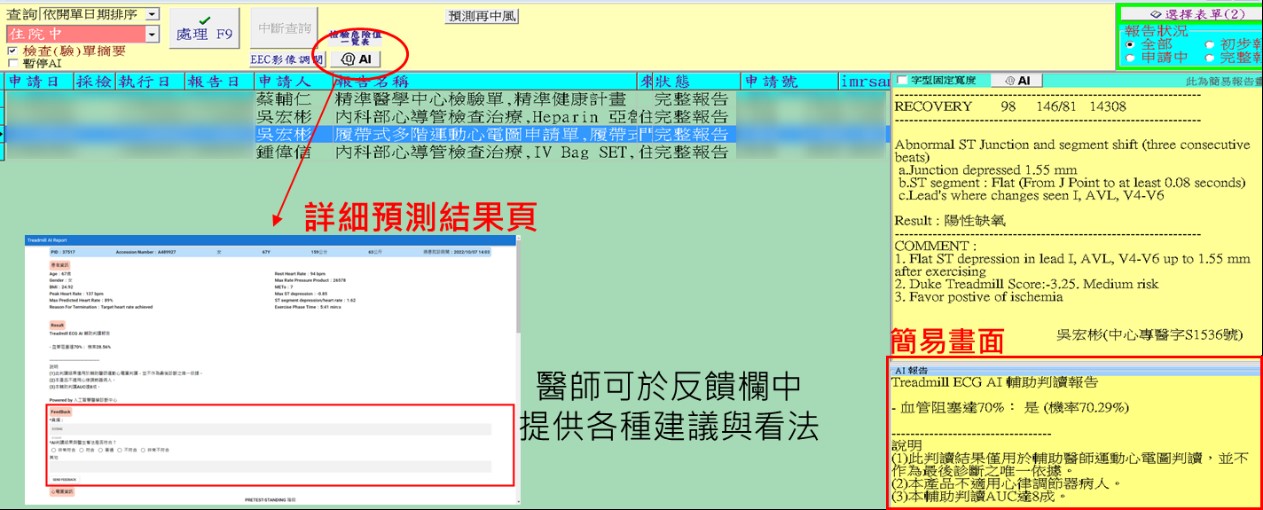Exercise Tolerance Testing
Research & Innovation
Exercise Tolerance Testing
Coronary Artery Disease (CAD) is a common cardiovascular disease, typically caused by narrowing or blockage of the coronary arteries. Patients may experience symptoms such as chest tightness, shortness of breath, dizziness, etc. Without timely treatment, it can lead to serious complications including heart failure, arrhythmias, myocardial infarction, and even sudden death.
In clinical practice, doctors utilize various diagnostic methods to detect whether patients have severe CAD. Among these methods, Exercise Electrocardiogram (ECG) is one of the commonly used and widely adopted diagnostic tests, employed to evaluate the function and health status of the heart. During an Exercise ECG test, patients are required to undergo electrocardiographic monitoring while exercising, assisting doctors in assessing the heart's response under stress.
After measurements, doctors will compare the variations among multiple twelve-lead electrocardiogram signals and combine them with relevant physiological and measurement features, medical history, lifestyle habits, and clinical presentations to comprehensively assess whether the patient has coronary artery disease. However, this interpretation heavily relies on the doctor's level of experience, subjective factors, and the variability in the difficulty of case interpretation, all of which can affect the accuracy of diagnosis. Additionally, due to factors such as busy clinical schedules, doctors often cannot interpret exercise electrocardiograms promptly.
To address the aforementioned issues, our institution utilized deep learning technology to train on patient electrocardiogram signals and physiological measurement features, resulting in the development of the "Exercise Electrocardiogram - Coronary Artery Disease AI-assisted Detection System". This system can rapidly detect the risk of coronary artery disease, providing secondary expert analysis to aid physicians in making timelier and more accurate diagnoses. Additionally, this system is available to exercise electrocardiogram operators, who can promptly alert high-risk patients to return for follow-up appointments, enabling patients to receive appropriate treatment at an earlier stage.




Achievements
2023 National Healthcare Quality Award (NHQA)
2023 Symbol of National Quality (SNQ)
2023 National Innovation Award
